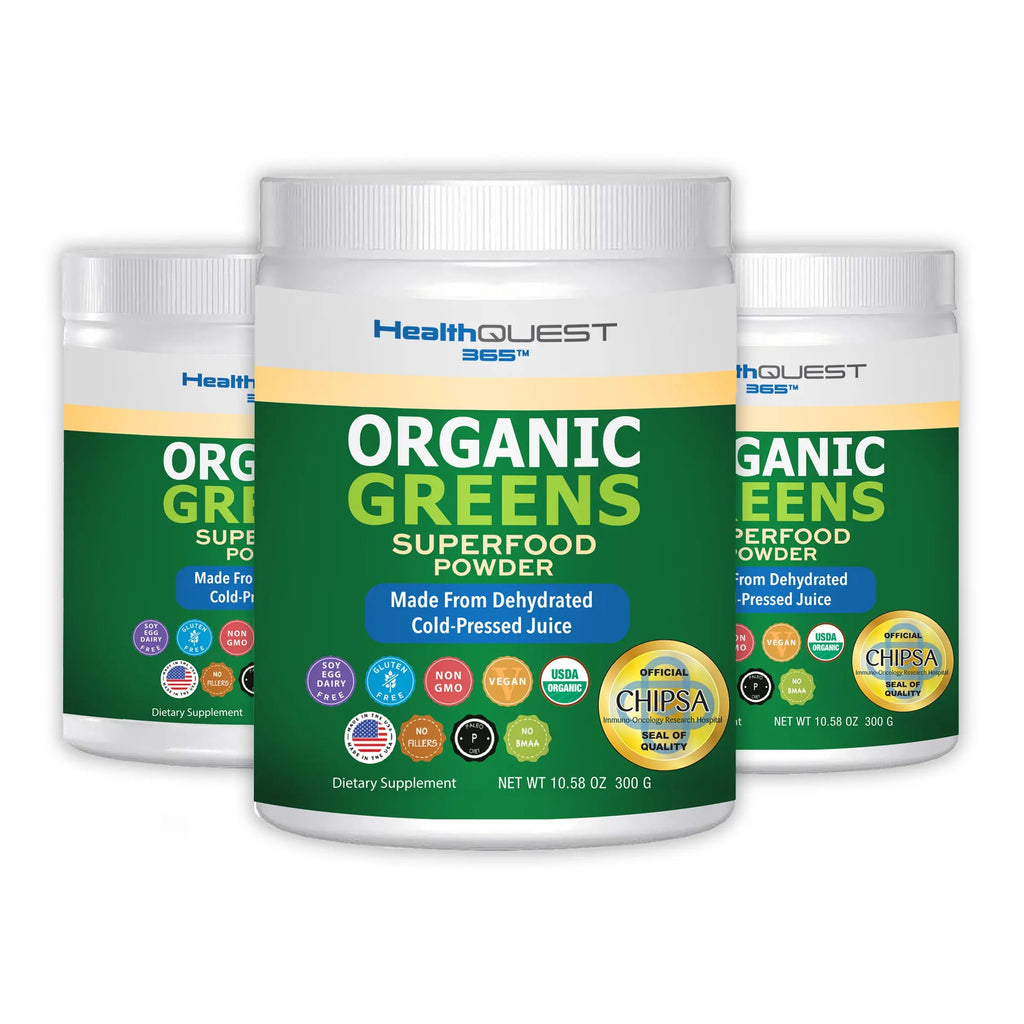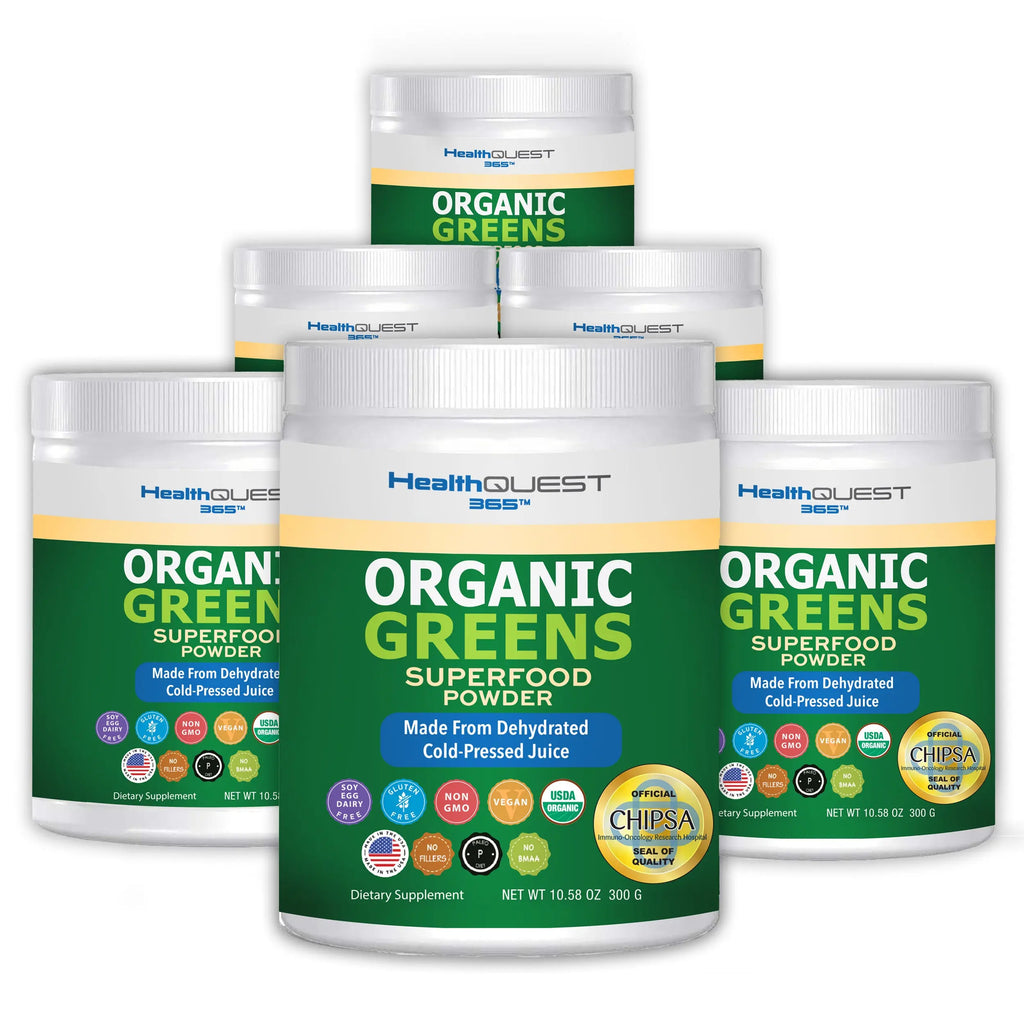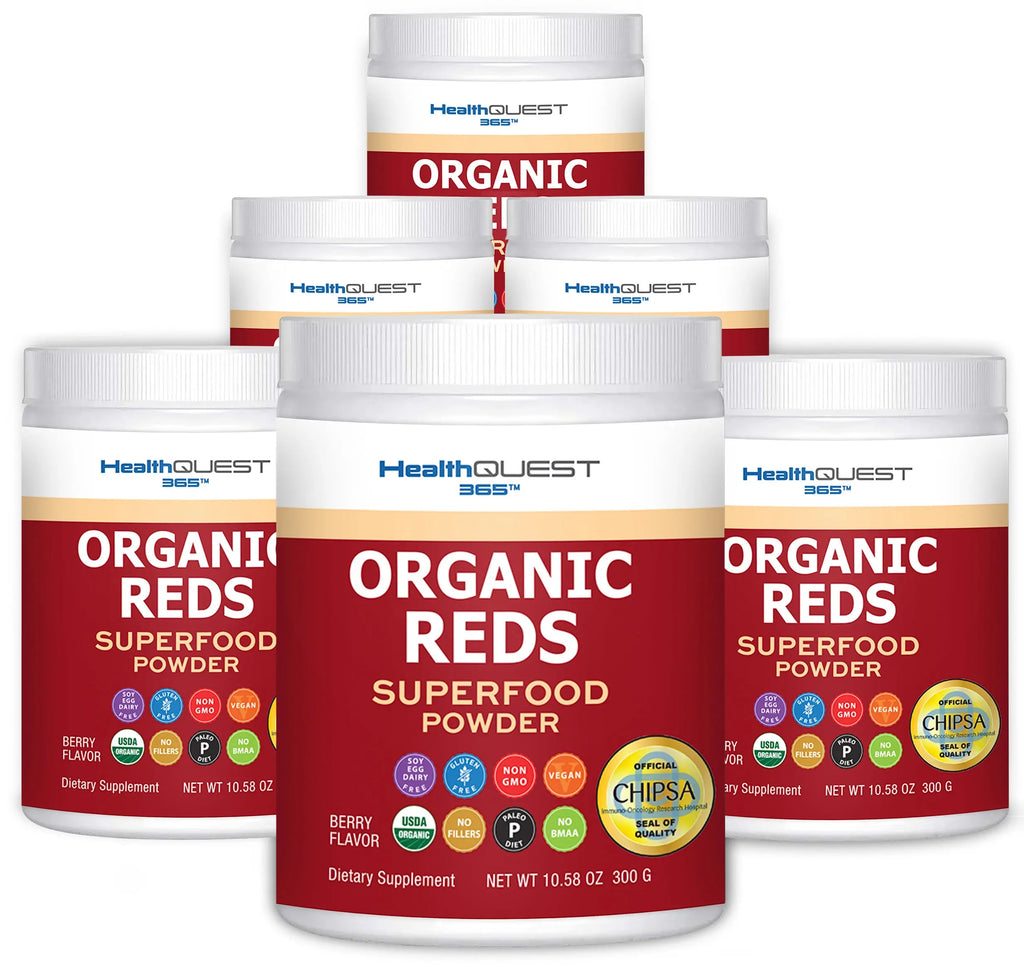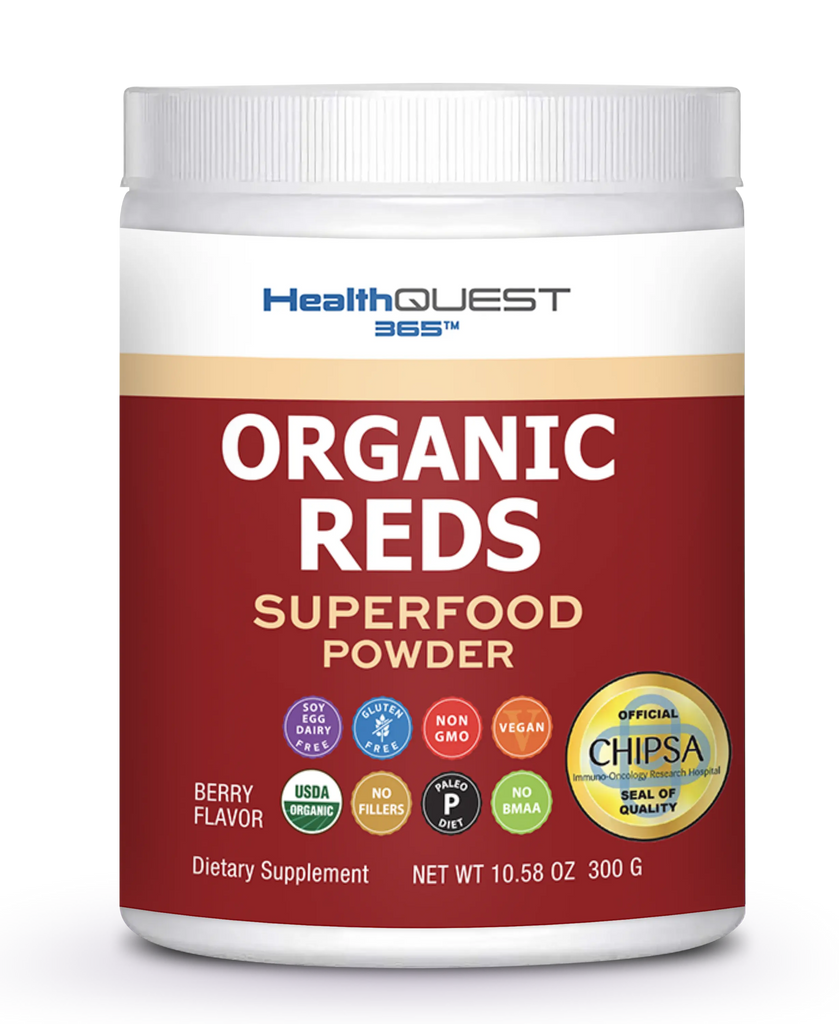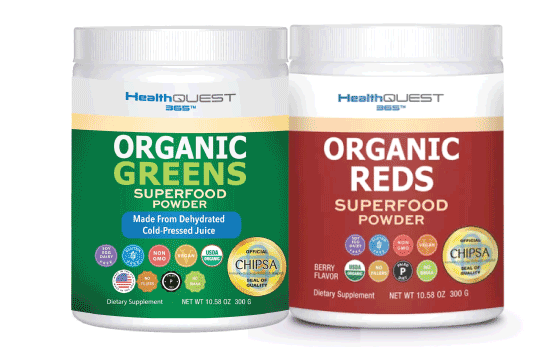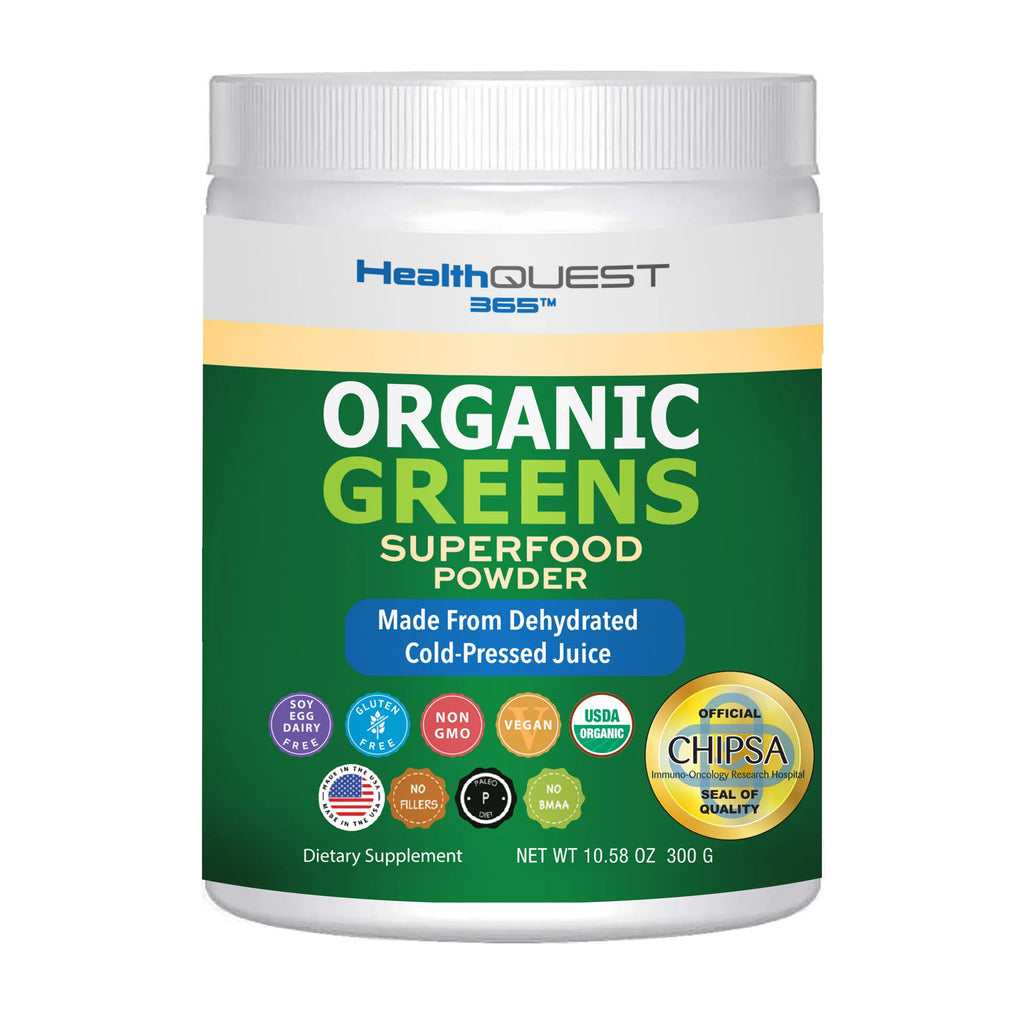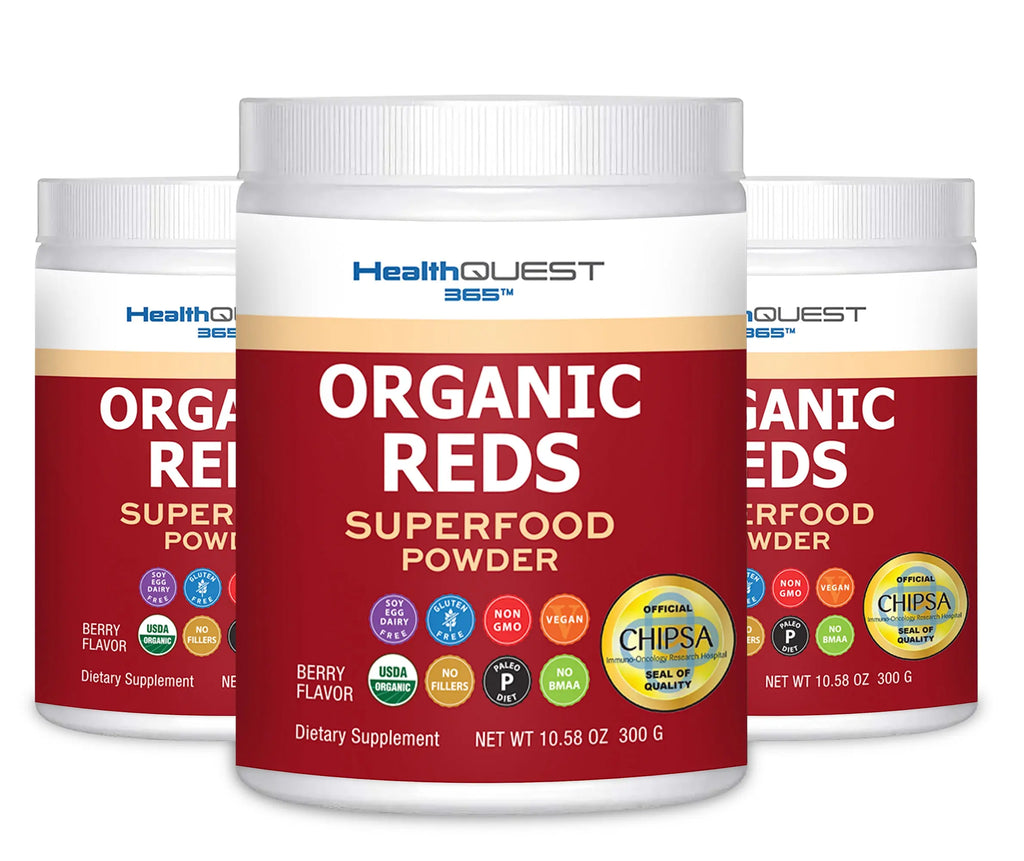It’s about health. It’s about healthy lifestyle. It’s about family™

Prebiotics 101: Nourishing Your Gut for Optimal Health and Wellness
Your gut is like a bustling city, home to trillions of bacteria that are hard at work breaking down food and keeping your digestion on track. Now, imagine you could feed the good guys in that bustling city, giving them exactly what they need to thrive. That's the role of dietary prebiotics.
Prebiotics are a type of non-digestible fiber found aplenty in fruits, vegetables, and whole grains, acting as the ultimate food for your beneficial gut bacteria. They're the unsung heroes in the food world, often dubbed “functional foods” because of their superpower to bolster gut health and fend off various diseases.
In this read, we’re diving deep into the world of prebiotics — shedding light on what they are, their incredible benefits, and how you can seamlessly weave prebiotic-rich foods into your meals. Ready to give your gut the boost it deserves? Let’s get started.

WHAT ARE PREBIOTICS ?
Prebiotics are special types of dietary fibers that our body can't digest. Think of them as the ultimate food for the good bacteria living in our gut. These fibers are found in lots of foods we eat, like whole grains, bananas, onions, and garlic. When we eat prebiotic foods, we're not feeding ourselves directly, but rather the beneficial bacteria in our digestive system. This is super important because these good bacteria help keep our gut healthy.
They play a big role in digesting food, supporting our immune system, and keeping us feeling good. So, when we talk about prebiotics, we're talking about the stuff that helps grow beneficial gut bacteria, making our gut a happier and healthier place.
THE HEALTH BENEFITS OF TAKING PREBIOTICS FOR GUT HEALTH
You can enjoy many benefits if you consume prebiotics on regularly. These include:

IMPROVED DIGESTION
Prebiotics help healthy bacteria grow in the gut. This can improve digestive health and ease symptoms of digestive disorders. You can lower your risk of the following:
-
Inflammatory bowel disease - chronic gastrointestinal inflammation
-
Irritable bowel syndrome - a class of symptoms that manifest together
Prebiotics can also help you pass stool easier. It can make the process smoother if you are having problems with your bowel movement. This is a very common problem too.

STRENGTHENED IMMUNE SYSTEM
Your gastrointestinal tract is not the only one that benefits from prebiotics. A balanced gut microbiome can help strengthen your immune system. Your body does this by fighting off harmful bacteria.
When your immune system is strong, you can enjoy these things:
-
You have good health
-
You can live better
-
You have protection from many diseases
-
You become stronger
-
You can enjoy your passions and the activities you love

Give You ALL Our Best Workbooks
Get all the Best Workbooks + Action Guides from our expert
REDUCED RISK OF CHRONIC DISEASES
Consuming prebiotics regularly can help reduce your risk of chronic diseases. You can avoid or manage these illnesses:
-
Type 2 diabetes - when your blood sugar level is too high
-
Obesity - risky, excessive fat with a body mass index more than 30
-
Cardiovascular disease - an illness of your heart and blood vessels
Chronic diseases last long. People who have them can control them, but these conditions can be rarely cured. Proper illness management is essential if you have a chronic disease. You can make the quality of your life better if you manage your condition well.
INCREASED ENERGY LEVELS
Prebiotics can improve energy levels by providing the gut with vital nutrients.
TOP FOODS HIGH IN PREBIOTICS
Embarking on a journey to boost our gut health, we’ve scoured research and expert recommendations to compile a list of best prebiotic foods These foods are not just nutritious; they're essential in feeding the good bacteria that reside in our digestive tract.
-
Asparagus: This green veggie is not just a side dish; it's a prebiotic powerhouse, packed with fiber and vitamin K, making it a favorite among beneficial gut bacteria.
-
Bananas: Especially when they're a little underripe, bananas are loaded with resistant starches that act as a feast for our gut's friendly bacteria, aiding in digestive health.

-
Dandelion Greens: Beyond their bitter taste, these greens are a fiber-rich gem, providing a substantial amount of prebiotics along with a variety of minerals.
-
Garlic: This culinary staple does more than flavor our dishes; it's a source of FOS and inulin, fostering a hostile environment for harmful bacteria while nurturing the good ones.
-
Jerusalem Artichokes: Known for their high inulin content, these tubers support the growth of healthy gut bacteria and are also a great source of potassium, iron, and copper.
-
Leeks: As a relative of onions, leeks boast a significant amount of prebiotic fiber, encouraging the proliferation of beneficial gut bacteria.
-
Onions: With their rich prebiotic content, onions not only add flavor to our meals but also strengthen our immune system by supporting healthy gut bacteria.
-
Chicory Root: Often used as a coffee substitute, chicory root is brimming with fiber and inulin, promoting the growth of healthy gut microbiota while being low in calories.

FREE "Mystery Gift"?
Let me stay in touch with you via email and as a thank you - get this FREE gift.. Something others paid over $1,000 for.
(True story)
INCORPORATING PREBIOTIC FOODS IN YOUR DIET
We understand that knowing about these prebiotic-rich foods is one thing, but incorporating them into your daily meals is another. Here’s how we make sure our diets are loaded with gut-friendly prebiotics:
-
Start Your Day Right: Mix bananas or apples with your morning oatmeal or cereal. Not only does it add a sweet touch, but it also kickstarts your day with a prebiotic boost.
-
Salads and Sides: Toss dandelion greens, asparagus, or leeks into your salads. If you’re not a fan of salads, grilled asparagus makes a delicious and nutritious side dish.

-
Creative Cooking: Incorporate garlic and onions into your cooking. They’re versatile ingredients that can enhance the flavor and prebiotic content of nearly any dish.
-
Snack Smart: Jerusalem artichokes and chicory root can be baked or roasted for a healthy, prebiotic-rich snack. Alternatively, bananas make for an easy, on-the-go snack.
By weaving these prebiotic-rich foods into our diets, we support our gut health, aiding in everything from digestion to immune function. It’s a tasty way to nurture our body’s inner ecosystem, ensuring our digestive system and overall health are in top form.
THE ROLE OF SUPPLEMENTS IN SUPPORTING GUT HEALTH
While we're big advocates for getting nutrients directly from food, we understand that sometimes it's not always possible to meet all our dietary needs through food alone. This is where supplements, particularly prebiotic supplements, come into play.
A prime example is HealthQuest 365's Organic Greens, a dietary supplement that’s packed with prebiotic fibers. It’s designed to support those beneficial bacteria in your gut, contributing to a healthier digestive system, better nutrient absorption, and an overall boost in well-being.
Supplements like Organic Greens can be a convenient way to ensure you're getting enough prebiotics, especially on those days when your diet might not be perfect. They can fill the gaps, making sure your gut's microbial residents are well-fed and thriving, supporting everything from immune function to metabolic health.

OVERCOMING CHALLENGES IN PREBIOTIC CONSUMPTION
We get it, incorporating a variety of prebiotic-rich foods into your daily diet can sometimes feel like a challenge. Maybe it's the taste, availability, or even just the habit of eating certain foods that makes it tough. Here’s how we tackle these challenges:
-
Taste Preferences: Not everyone loves the taste of chicory root or dandelion greens. If that’s you, try starting small. Mix them into dishes where they’re not the main flavor, like smoothies or soups.
-
Availability: Some prebiotic-rich foods might not be readily available in your local grocery store. This is where supplements like Organic Greens 365 can be a game-changer, ensuring you get those vital prebiotics without the hunt for specific foods.
-
Dietary Restrictions: If you have dietary restrictions that make it difficult to consume certain prebiotic foods, look for alternatives that fit your diet or consider a comprehensive supplement to cover your bases.
CONSULTING YOUR DOCTOR
Consult your doctor to see what you can do to up your prebiotic consumption. They know your medical history and health status best. Your doctor will conduct tests to gauge your health if it's your first time visiting them.
This step is crucial, especially if you plan on taking supplements. Prebiotic supplements are generally safe if you get them from certified sources. However, you want to stay safe and avoid any risk of complications. Your doctor can help you do just that.
They will do these things during your appointment with them:
-
Review your medical history
-
Assess your current health
-
Learn about any medical conditions you may have
-
Ask about the medications you are taking, if there are any
After their assessment, they will recommend the best prebiotic supplements. But it's not just that! Your doctor can help you mix your diet up. They can suggest a meal plan so you can eat more prebiotic foods.

TO WRAP UP
Prebiotics are awesome for your gut health. They're like a superfood for the good bacteria living in your tummy. Eating foods filled with prebiotics or taking a supplement like Organic Greens 365 can make a big difference. They help keep your digestion smooth, which means a happier belly. Plus, they have other cool benefits like:
-
Lowering the chance of getting sick with long-term illnesses
-
Making your immune system stronger
-
Giving you more energy
But remember, it's smart to talk to your doctor before jumping into any supplements, just to be on the safe side. Adding more prebiotics to your life can be a game-changer for your health. And if you're looking for an extra boost, give Organic Greens 365 a try. It's tasty and packed with the good stuff your gut loves!
Here's to feeling great and living your best life!
FREQUENTLY ASKED QUESTIONS
Prebiotics are non-digestible fibers that feed beneficial gut bacteria, promoting their growth and activity, which in turn supports digestive health and overall well-being.
Include foods rich in prebiotic fibers such as chicory root, onions, garlic, leeks, asparagus, bananas, and whole grains to support a healthy gut microbiome.
Yes, prebiotics can help alleviate symptoms of IBS by promoting a healthy balance of gut bacteria and improving digestive function, but individual responses may vary.
Yes, prebiotic supplements are available and can be taken to support gut health, but it's important to choose reputable brands and consult with a healthcare professional for personalized recommendations.
While prebiotics are generally well-tolerated, consuming large amounts may cause digestive discomfort such as gas, bloating, or diarrhea in some individuals, so it's best to start with small doses and gradually increase intake.
TRY AND GET MORE BENEFITS
... AND HE HATES VEGETABLES!
ORGANIC SUPER GREENS DRINK!
CHIPSA HOSPITAL CERTIFIED NUTRITION

CHIPSA Hospital, known as the original Gerson Hospital, was founded by Charlotte Gerson and Victor Ortuno in 1979.
CHIPSA is known as one of the leading integrative immuno-oncology treatment hospitals in the world.
CHIPSA Patients follow an Enhanced Gerson Protocol and drink 13 Cold Pressed Juices a day and 2oz of Organic Greens 365 daily.
*These statements have not been approved by the Food and Drug Administration. This product is not intended to diagnose, treat, cure, or prevent any disease.
The website's content and the product for sale is based upon the author's opinion and is provided solely on an "AS IS" and "AS AVAILABLE" basis. You should do your own research and confirm the information with other sources when searching for information regarding health issues and always review the information carefully with your professional health care provider before using any of the protocols presented on this website and/or in the product sold here.
Neither Health Quest 365 LLC. nor the author are engaged in rendering medical or similar professional services or advice via this website or in the product, and the information provided is not intended to replace medical advice offered by a physician or other licensed healthcare provider.


